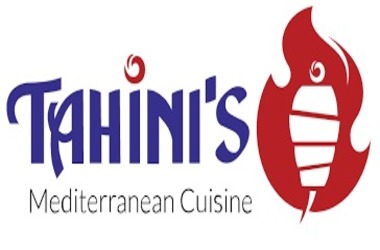
The business, which is situated in London, Ontario, Canada, made its first bitcoin investment in August 2020. During a recent interview with Insider, Tahini’s chief marketing officer, Aly, said that the company had achieved a return of 460 percent on its original investment.
“In the future, we will continue to transfer surplus profits to bitcoin. Indeed, we purchased at the [April 2021 price] apex and then raced it all the way to the bottom, and we continued to purchase routinely on a monthly basis. As a result, it has played well for us “he said.
Bitcoin was trading for less than $12,000 in August 2020. After reaching a historic high of more than $69,000 last week, it was trading about $58,075 on Friday. When Tahinis works in fiat money, such as Canadian dollars, it employs a so-called “bitcoin-standard approach,” according to which the company earns a profit and then puts it all in bitcoin, a model that Aly compared to that of MicroStrategy.
The data analytics firm utilizes its spare income to acquire what it refers to as a “reliable store of wealth,” according to the company’s website. MicroStrategy recently possessed 114,042 bitcoins, with a market worth of around $6.8 billion as of Thursday afternoon. Aly had previously shied away from bitcoin after one of his financial heroes, Warren Buffett, referred to it as “rat poison squared” in a 2018 speech.
Tahinis holds onto its operating capital in cash for a few months before transferring the profits, which form part of its treasury, to bitcoin. Tahinis, a privately held company, declined to divulge how much bitcoin it had on its financial sheet, but it did say that sales at its restaurants have risen to more than $8 million in the last year.
The firm plans to grow from eight sites in 2021 to nine locations in 2022, and it expects to have an aggregate of 29 restaurants by 2022. Tahinis, according to Aly, has worked with hundreds of small companies throughout the globe to help them transition to a bitcoin-based approach.
“The most significant issue that we are facing right now is the depreciation of the currency,” Aly said. “Inflation, according to central banks, is just 5 percent each year. However, this is very dependent on what you wish to purchase. Poultry has increased by 45 percent, beef has increased by 25 percent, and imported commodities and spices have increased by 65 percent “Since March 2020, when the epidemic began to accelerate, the price of oil has increased by 110 percent,” he stated.
The decision to invest in [bitcoin] made sense since it would outperform whatever inflation rates that we see in the future decade, says the author. Their sensitivity to currency depreciation stems from their experience of witnessing their parents’ income and savings eroded by a 65 percent decline in the value of the Egyptian pound versus the US dollar between 2012 and 2017.
When the Arab Spring movement that led to the overthrow of Egyptian President Hosni Mubarak took place in 2011, the brothers were at Tahrir Square to witness the events. “We were confronted by riot police, and we were subjected to tear gas,” Aly said.
“The next year, we returned to Canada with a rekindled desire to begin our new lives here,” which led to the creation of Tahinis. The Hamams had already received dual citizenship via their father, who got a Ph.D. in mathematics in Canada and then served as a mathematics professor in Saudi Arabia before settling in Canada.
Every Tahini restaurant has been equipped with bitcoin ATMs in order to encourage staff and guests to purchase the cryptocurrency. It does not accept bitcoin for food payments, in portion because accounting and tax reporting are much simpler to manage in fiat money, and partly because it want to encourage the usage of bitcoin in general.
Tahinis managed to recover from the pandemic in May 2020, after revenues plunged by 80 percent and the company was forced to lay off employees as a result. In addition to bitcoin, the use of a quick-service restaurant model instead of an in-person dining format, which requires more square area to run, has been beneficial.
In an interview with Insider, Omar Hamam, the CEO of Tahini, said that “we had more individuals sign up for franchises after COVID than we had before COVID.”
“‘We have a whole marketing staff that works hard every day to put out material that will lighten the mood,” said Omar, who added that people can see Tahinis’s cuisine on TikTok and Instagram, and that the fact that they have their own supply-chain firm helps a lot. “As a result, we’ve taken a comprehensive approach to the company.”